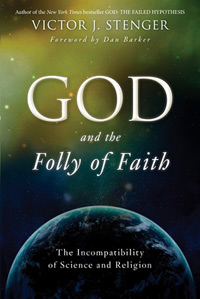In this week’s eSkeptic:
- Lecture at Caltech this Sunday: Dr. Nancy Segal on Twins
- Follow Michael Shermer: The Hidden Price of Immoral Acts
- Follow Daniel Loxton: Echoing the Past
- Skepticality: Stealth Skepticism: Skeptrack at Dragon*Con Recap
- MonsterTalk: Yokai Attack! The Japanese Monster Survival Guide
- Feature Article: Of Miracles and Magisteria
Lecture at Caltech this Sunday
New Admission Policy and Prices
Please note there are important policy and pricing changes for this season of lectures at Caltech. Please review these changes now.
SINCE 1992, the Skeptics Society has sponsored the Skeptics Distinguished Science Lecture Series at Caltech: a monthly lecture series at the California Institute of Technology in Pasadena, CA. Most lectures are available for purchase in audio & video formats. Watch several of our lectures for free online. Our lecture this Sunday is…

Born Together-Reared Apart:
The Landmark Minnesota Twin Study
Sunday, September 16, 2012 at 2 pm
Baxter Lecture Hall
“The Minnesota Study of Twins Reared Apart” startled scientists by demonstrating that twins reared apart are as alike, across a number of personality traits and other measures, as those raised together, suggesting that genetic influence is pervasive. Dr. Nancy Segal, a professor in the Department of Psychology at California State University, Fullerton, and the director of the Twin Studies Center, offers an overview of the study’s scientific contributions and effect on public consciousness. Dr. Segal is an associate editor of Twin Research and Human Genetics, the official journal of the International Society for Twin Studies.
Followed by…
- DR. CHRISTOPHER BOEHM
Moral Origins: The Evolution of Virtue, Altruism, and Shame
Sunday, September 30, 2012 at 2 pm
Baxter Lecture Hall

NEW ON SKEPTICBLOG.ORG
What is Seen and What is Unseen:
The Hidden Price of Immoral Acts
On reading Tyler Hamilton and Daniel Coyle’s new book, The Secret Race: Inside the Hidden World of the Tour de France: Doping, Cover-ups, and Winning at All Costs, Michael Shermer discusses the lengths to which some cyclists go to win an event like the Tour de France, and reminds us of the hidden costs of immoral acts.

NEW ON SKEPTICBLOG.ORG
Echoing the Past
Daniel Loxton reflects on a similarity between lines he wrote in 2007 and a passage that Paul Kurtz wrote in 1988.

Stealth Skepticism: Skeptrack at Dragon*Con Recap
SKEPTICALITY EPISODE 190
This week on Skepticality, Derek briefly re-caps the events of the Skeptrack at Dragon*Con 2012. For those of you who could not make it out for the fun and excitement, he plays one of the group sessions from the event: a panel discussion which involved JREF Outreach Coordinator Brian Thompson, bestselling authors Michael Stackpole, Scott Sigler, and Gail Z. Martin, as well as Skepchicks Rebecca Watson and Amy Davis Roth. They discuss using popular art and creative endeavors to get skeptical and critical thought into a segment of the population which would otherwise never seek out the information directly.
Get the Skepticality Podcast App
for Apple and Android Devices!
Get the Skepticality App — the Official Podcast App of Skeptic Magazine and the Skeptics Society, so you can enjoy your science fix and engaging interviews on the go! Available for Android, iPhone, iPad, and iPod Touch. Skepticality was the 2007 Parsec Award winner for Best “Speculative Fiction News” Podcast.

Yokai Attack!
This week on MonsterTalk, we interview Matt Alt and Hiroko Yoda, authors of Yokai Attack! The Japanese Monster Survival Guide, a book which details many folkloric monsters of Japan. From the slash-mouthed woman to a giant disgusting foot—these creatures have inspired fear and wonder in Japan and influenced books, movies and video-games.
Get the MonsterTalk Podcast App
for Apple and Android Devices!
Get the MonsterTalk Podcast App (presented by Skeptic Magazine) and enjoy the science show about monsters on your handheld devices! Available for Android, iPhone, iPad, and iPod Touch. To get the app for iOS devices, download the free Podcast Box App on iTunes and then search for MonsterTalk within the Podcast Box app to listen to Monstertalk on your iPhone, iPad or iPod. For Android devices, simply install the stand-alone app. MonsterTalk was the 2012 Parsec Award winner for Best “Fact Behind The Fiction” Podcast.
About this week’s eSkeptic
In this week’s eSkeptic, Richard Morrock reviews New Atheist Victor Stenger’s new book God and the Folly of Faith: The Incompatibility of Science and Religion (2012, Prometheus Books, ISBN 978-1616145996).
Richard Morrock is the author of The Psychology of Genocide and Violent Oppression, published by McFarland and Co. in 2011. He has served as vice president of the International Psychohistorical Association, and is currently working on a book about Gen. Douglas MacArthur’s intelligence chief, Charles Willoughby.
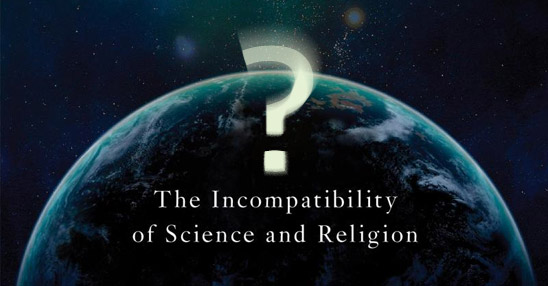
Of Miracles and Magisteria
a book review by Richard Morrock
Physicist Victor Stenger is renowned in skeptical circles as a hard-core atheist, and in his latest book, he targets organized religion as well as the quantum spiritualism of Deepak Chopra and the accommodationist position taken towards religion by adherents of Stephen Jay Gould’s Non-Overlapping Magisteria (NOMA). This book is clearly a must-read for anyone interested in the role of religion in society today, and it also provides an easy-to-understand explanation of quantum theory, showing that it lends no support to “New Age” spiritualism.
Stenger discusses everything from the origin of the universe to the 2012 elections. Even where one might disagree with his conclusions, he is still thought-provoking. Stenger demolishes the theist argument that science is no less based on faith than religion. He draws a firm line between faith and trust. We have faith in supernatural entities, whose actions we cannot experience directly, or in political or religious leaders whose sincerity has yet to be tested, but we trust science—or a reliable friend, or our auto mechanic—based on our experience. To believe in something in the absence of evidence is, in Stenger’s estimation, foolish, and it would be hard to disagree.
Many scientists, following the logic of NOMA, have concluded that science has nothing to say about the supernatural. Stenger points out that scientists have looked into near-death experiences and the effectiveness of prayer on the sick, finding nothing but trickery and self-deception. Why should angels, demons or God himself be considered off limits?
In fact, scientists had better hope that the supernatural doesn’t exist, because if it did, all scientific experiments could be invalidated. How would we know that a positive result was caused by the phenomenon the scientists were investigating, or by some lab worker who silently prayed for the outcome, or by an invisible imp lurking in the corner? Should scientists call Ghostbusters to sweep their labs before each experiment? What, then, about spooky action at a distance?
Stenger is right when he points out the hypocrisy of religious leaders who preach morality to their followers while leading depraved lives in private. And he has fun with the Catholic doctrine that we are all sinners and must suffer the tortures of purgatory before we are admitted, if even then, to heaven. We are still waiting for a priest to say to the grieving relatives at a funeral, “Your beloved husband and father is now burning in the fires of purgatory for a thousand years because he did some bad things in his life.” Instead, they invariably remind us that the departed are looking down on us from heaven.
Stenger says that the Vatican never excommunicated a Nazi leader. This is incorrect. Hitler and Goebbels were both excommunicated, but not because of their role in World War II or the Holocaust. Prior to the war, Goebbels married a Protestant woman without agreeing to raise their children—whom the couple murdered during the last days of the Third Reich—as Roman Catholics. Hitler was best man at the wedding. It’s not that the Vatican didn’t oppose Hitler—they thought he was too tolerant of other religions!
The theistic argument has always been that if the universe exists, it must have had a creator, who can only be God, whatever characteristics one ascribes to Him. This raises the question of who created God. Theists invariably respond that God always existed, to which Bertrand Russell replied that if God could always exist without being created, so could the universe.
That was before the Big Bang Theory (the cosmological event, not the TV show). Scientists accept the idea that the universe had a beginning 13.7 billion years ago. Even though this is consistent with the biblical account (“Let there be light”), fundamentalists in Kansas banned the Big Bang theory from the schools along with Darwinian evolution. Fundamentalists are opposed to science in principle, not only where it contradicts the Bible. Ironically, while the Big Bang theory does not prove the existence of God, it at least leaves open the possibility.
If the universe was created by a Big Bang, what caused the Big Bang? Perhaps a purple-robed patriarch? Stenger gives us a number of alternative scenarios, all of which leave out supernatural entities. One of these is the two-sided universe. One side is ours, and the other is a mirror image in which time runs backwards. Each side begins with a Big Bang and ends with a Big Crunch, causing the Big Bang on the other side. There, since the arrow of time runs in reverse, ashes burst into flame and turn into wood, water runs uphill, and predators regurgitate their prey, which then comes to life, and the two run off backwards with the predator in the lead.
Another scenario Stenger presents is the Multiverse, which holds that our universe is the result of a black hole created in a much larger universe, which in turn came from an even bigger one, and so on forever. This seems to contradict Stenger’s own claim that there are no infinities in nature, which, if true, would narrow down the number of possible scenarios for the origin of the universe. Furthermore, it overlooks the likelihood that each “daughter” universe would be far smaller than its “mother,” ultimately leading to mini-universes too small to create any new ones. And it hands the theists the argument that God must have created the Multiverse, since what else could have started it? In any case, we have no more evidence for other universes than we have for God, and this theory violates Occam’s razor by postulating a vast number of unproven entities. Also, how could scientists verify the existence of black holes, if they are in other universes?
Stenger is a reductionist, arguing that reality is “particles all the way up.” He dismisses the theory that there are different levels of reality, with new laws emerging at each level, claiming that this is supposed to lead to God controlling everything. Not necessarily. What he terms the emergentist (I prefer “interactionist”) position is just as compatible with atheism as it is with theism. The different laws that emerge at various levels—physics, chemistry, biology, psychology, history, philosophy—coexist with, rather than replace, the laws at the lower levels. After all, you cannot understand a football game simply by knowing the laws of physics; you also have to understand the rules of football, even if the players and the ball are ultimately made up of particles. Sometimes events at one level of reality cause events at another level, typically higher but occasionally lower. Stenger denies the possibility of such “top-down causality.” But examples of this would be someone suffering a heart attack (biological) after receiving distressing news (psychological), or the public getting angry (psychological) over something a politician said or did (historical). This has nothing to do with any supernatural creator.
Gould’s argument for NOMA, which Stenger rejects, was never intended to be a description of reality, but rather a prescription for it. NOMA reduces the Bible and other holy books to works of literature, often set in historical context, but no more literally true than Doctor Zhivago or Saving Private Ryan. These works have something to tell us, even though we recognize them as fiction. Just as we should learn to distinguish between faith and trust, as Stenger informs us, so should we distinguish between knowledge, derived from science and involving facts, and wisdom, which is supposed to be provided by religion, and which involves values. To be sure, we have pretty much mined the Bible for whatever wisdom it contains, and there is no shortage of pious but unwise people.
Science does not know everything, but if there are things we do not know, or may never know, there are others we can now be sure of. The supernatural does not exist; the laws governing the universe are immutable, and do not change because of our prayers; we don’t go to heaven or hell, or get reincarnated when we die; there is no inherent purpose to anything in the universe, except for our own lives and what we make of them. If the public can be educated to accept this, it hardly matters whether or not they call the laws of nature “God.”
God cannot yet be disproved, but at least we can dismiss angels, demons, ghosts and Santa Claus. And if miracles were real, far from proving the existence of God, they would actually disprove it. After all, if the laws of nature do not always apply—if the dead return from the grave—then anything is possible and no God is required to maintain the order of the universe, because there isn’t any order.
Religious people will not abandon their beliefs in the face of Stenger’s arguments. But they might revise them. Take away the supernatural elements from religion, which can be disproven, and the difference between the religious and scientific camps become little more than a matter of semantics. ![]()
Skeptical perspectives on science and religion…
-
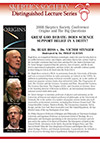 Great God Debate: Does Science Support Belief in a Deity?
Great God Debate: Does Science Support Belief in a Deity?
Dr. Hugh Ross v. Dr. Victor Stenger, moderated by Dr. Philip Clayton -
In part 1 of our 2008 conference “Origins & The Big Questions” Emeritus professor of physics and astronomy at the University of Hawaii and adjunct professor of philosophy at the University of Colorado, Dr. Victor Stenger challenges evangelical Christian cosmologist Dr. Hugh Ross makes his case for why there is no conflict between science and religion, and claims that in fact, science leads to the inevitable conclusion that God exists and that He’s the Judeo-Christian God. Order this debate on DVD, or order the other parts from this conference (or the entire 5-DVD set) below…
-
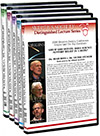 Origins & The Big Questions
Origins & The Big Questions
Conference 2008 (5 Part Set)
with Donald Prothero, Leonard Susskind, Paul Davies, Sean Carroll, Christof Koch, Kenneth miller, Nancey Murphy, & Michael Shermer -
Today, there is arguably no hotter topic in culture than science and religion, and so much of the debate turns on the “Big Questions” that involve “origins ”: the origin of the universe, the origin of the “fine-tuned” laws of nature, the origin of time and time’s arrow, the origin of life and complex life, and the origin of brains, minds, and consciousness. Now, science is making significant headway into providing natural explanations for these ultimate questions, which leaves us with the biggest question of all: “Does science make belief in God obsolete?” we have assembled some of the world’s greatest minds to discuss some of the world’s greatest questions. In 2008, the Skeptics Society held a conference wherein we assembled some of the world’s greatest minds to discuss some of the world’s greatest questions…
READ more about this conference and order the 5-part DVD set.
OR, order single DVDs: part 1 | part 2 | part 3 | part 4 | part 5
-
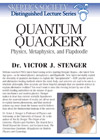 Quantum Quackery: Physics, Metaphysics, and Flapdoodle
Quantum Quackery: Physics, Metaphysics, and Flapdoodle
by Dr. Victor J. Stenger -
Dr. Stenger shows that because quantum mechanics is obscure it is often misused to explain the “unexplainable”—ESP, psychic power, etc. But quantum mechanical hypotheses fit the facts of material reality quite well without any need at all to call upon mysticism.
-
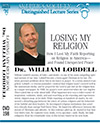 How I Lost My Faith Reporting on Religion in America — and Found Unexpected Peace
How I Lost My Faith Reporting on Religion in America — and Found Unexpected Peace
by William Lobdell -
William Lobdell’s journey of faith — and doubt — is one of the most compelling spiritual memoirs of our time. Lobdell noticed that religion wasn’t covered well in the mainstream media, and he prayed for the Lord to put him on the religion beat at a major newspaper. In 1998, his prayers were answered when the Los Angeles Times asked him to write about faith. What happened next was a roller-coaster of inspiration, confusion, doubt, and soul-searching as his reporting and experiences slowly chipped away at his faith. While reporting on hundreds of stories, he witnessed a disturbing gap between the tenets of various religions and the behaviors of the faithful and their leaders…
-
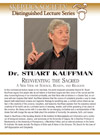 Reinventing the Sacred: A New View of Science, Reason & Religion
Reinventing the Sacred: A New View of Science, Reason & Religion
by by Dr. Stuart Kauffman -
World-renowned complexity theorist Dr. Stuart Kauffman argues that people who do not believe in God have largely lost their sense of the sacred and the deep human legitimacy of our inherited spirituality, and that those who do believe in a Creator God, no science will ever disprove that belief. Kauffman believes that the science of complexity provides a way to move beyond both reductionist science and dogmatic theology to something new: a unified culture where we see God in the creativity of the universe, biosphere, and humanity…



